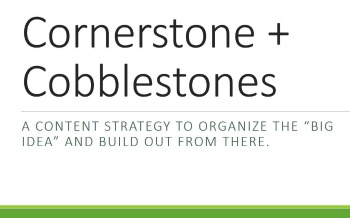You can try to define your brand.
You can create your corporate culture. Build a great product. Map your touchpoints. Hire wisely. Turn your customers into raving fans. And yet–
I define your brand.
Your employees, customers, members, patients, and everyone else your organization touches defines your brand. You may think it is one thing (or want it to be), but our individual experiences define what your brand means to us.
Here’s a case in point involving raving fans.
You want to understand how I define your brand.

I participated in a focus group last week for Washington Nationals season ticket holders. It appeared to be intended to understand how fans perceive the team and the in-game experience. At one point they asked us to “draw how we see the Nationals.” I drew a door half open. (I really can’t draw.)
I was the outlier in the room.
Apparently they were looking for baseballs and cracker jacks and Curly W logos.
Here’s the problem. For me, that’s only half the story. I’m a baseball fan. I’m a Nats fan. I’ve had season tickets since the team moved to Washington in 2005 — so, yeah, I’m a pretty raving Nats fan. But the Washington Nationals are also a business — and the way they do business doesn’t always sit well with me.
And, for me, the way you operate is part of your brand.
Listen to your fans.
It’s hard to define your brand.
Apple is one of the most heralded brands in the universe, but I couldn’t figure out how to get help when I went into an Apple store. For this non-believer, it was a customer experience fail.
USAA, on the other hand, is un-sexy. Their brand value is around consistency and reliability. And their customer service is both, which earns them strong loyalty and has non-members looking for ways to join.
You can do everything right, but ultimately your brand is going to be defined by those who cross paths with you. And that’s okay. You might not care what they think. But if and when you do, prepare to course correct as needed.



